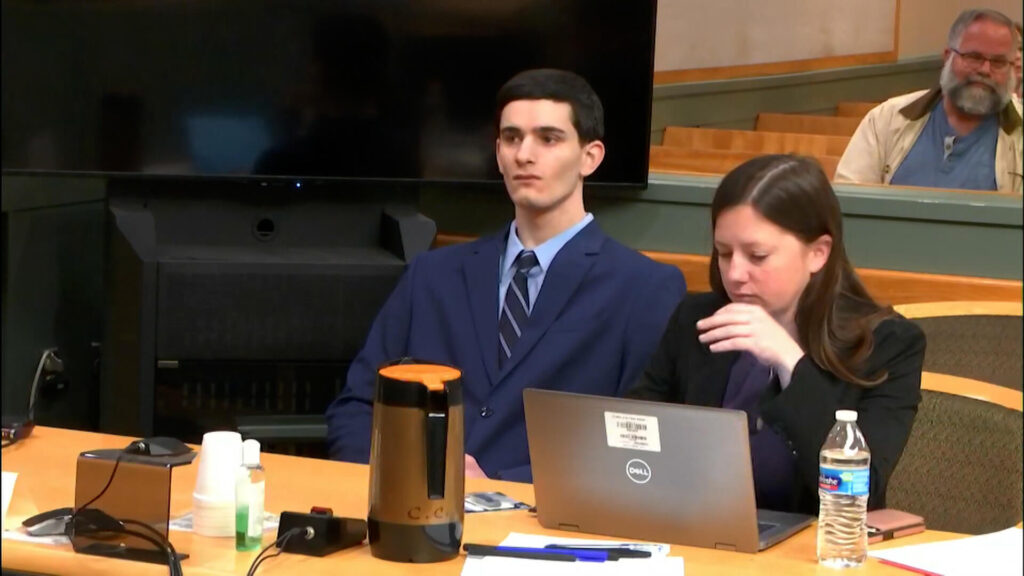In today’s hyper-connected digital age, stories that once may have remained local now quickly become national or even global headlines. One such case that has captured widespread attention is that of Zachary Latham, a young man whose name became synonymous with a tragic encounter that combined social media obsession, family conflict, and deadly violence. This article will provide an in-depth, fully detailed, and original exploration of the Zachary Latham case, the social and legal implications surrounding it, and the broader lessons society must consider.
Who Is Zachary Latham?
Zachary Latham was a young TikTok content creator and military serviceman who became the subject of national scrutiny following a deadly confrontation with his neighbor, William “Tim” Durham Sr., in 2020. At the time, Latham was living with his grandparents in Vineland, New Jersey, and had started posting videos to TikTok that frequently featured confrontations with his neighbors — particularly the Durham family.
These videos, often labeled under dramatic or aggressive captions, gained traction and brought Latham a modest but growing following. According to several accounts, Latham’s social media posts showcased escalating tensions with the Durham family, turning a local neighbor dispute into a public spectacle.
The Escalating Tensions Between Latham and the Durham Family
The Durham family had reportedly grown increasingly uncomfortable with Latham’s behavior and his repeated attempts to film or provoke interactions. Patricia Durham, the wife of the eventual victim, Tim Durham Sr., was frequently recorded or involved in arguments that later appeared on Latham’s TikTok channel.
The alleged motivation behind Latham’s actions, as reported by prosecutors and highlighted in court documents, was to gain fame and popularity through manufactured drama. These repeated altercations built up resentment and fear between the neighbors and ultimately contributed to a climate of hostility.
The situation spiraled out of control on May 4, 2020.
The Fatal Confrontation: What Happened on May 4, 2020?
On the evening of May 4, 2020, a confrontation outside of Latham’s home turned deadly. According to court filings and witness testimonies, Patricia Durham reportedly confronted Latham about his reckless driving in the neighborhood. This led to another argument, which escalated when Latham allegedly brandished a weapon — a stun gun — and fled to his home.
Tim Durham Sr., along with his two sons, allegedly entered the Latham property to confront Zachary. During the ensuing scuffle inside Latham’s garage, Latham fatally stabbed Tim Durham multiple times with a knife. The entire incident was captured, in part, on video — some of it filmed by Latham’s own wife, Sarah Latham, who was reportedly encouraging and filming the interaction for social media.
Legal Proceedings: Was It Self-Defense or Premeditated Murder?
After the incident, Latham was arrested and charged with manslaughter. The case quickly sparked national debate: Was Latham defending himself in his own home from multiple intruders, or was he the aggressor who lured his neighbors into a trap for the sake of social media fame?
The prosecution argued that Latham intentionally escalated tensions, recorded confrontations, and ultimately provoked the Durham family into an altercation that he planned to film. They pointed to his social media content, his wife’s filming of the attack, and the use of deadly force as signs that this was not simply a case of self-defense.
The defense maintained that Latham was ambushed in his own garage and acted to protect himself from what he perceived as a serious threat — a group of people entering his home with hostile intentions. New Jersey’s self-defense laws were central to the case, as they allow for the use of force — even deadly force — in some instances when a person is confronted in their own home.
As of the most recent legal updates, Latham has faced various charges including second-degree manslaughter, aggravated assault, and weapons offenses. His case remains one of the most debated examples of self-defense in the digital era.
Social Media’s Role in the Zachary Latham Case

One of the most striking elements of the Zachary Latham story is the role that social media played. Latham’s desire to gain fame through platforms like TikTok has raised alarming questions about how far individuals might go for likes, views, and online clout.
Latham was reportedly encouraged by the attention his videos were receiving, leading him to continue engaging in — and perhaps manufacturing — drama with his neighbors. In essence, he created a dangerous reality show without the consent of his participants. The behavior, prosecutors argue, became more about performative confrontation than actual grievances.
This case underscores the dangers of using social media as a platform for conflict, especially when real-life consequences, like violence and death, enter the equation.
Public Reaction and Ethical Questions
The public reaction to the case has been deeply divided. Some support Latham, believing he acted in self-defense, while others believe he was a provocateur who manipulated situations for internet fame.
This situation raises broader ethical and legal questions:
- At what point does filming confrontations for social media become harassment?
- Should social media platforms take responsibility when content escalates real-world conflict?
- How do self-defense laws apply in a digital era where confrontations are often instigated for entertainment?
The Zachary Latham case has also brought attention to the potential mental health implications of obsessive social media usage, and how online validation can cloud judgment and distort reality.
The Durham Family’s Civil Lawsuit
In addition to the criminal case, the Durham family filed a civil lawsuit against Latham and his wife, accusing them of orchestrating the conflict for views and financial gain. The lawsuit seeks damages and accuses Latham of wrongful death, emotional distress, and malicious behavior.
This civil case runs parallel to the criminal proceedings and could carry financial consequences for Latham and his family, regardless of the criminal outcome.
Broader Implications for the Justice System
The Zachary Latham story also touches on larger issues within the U.S. justice system:
- How do we interpret stand-your-ground or self-defense laws when someone actively provokes an altercation?
- Does entering someone’s home with hostile intentions strip away one’s right to claim victimhood?
- How much weight should digital evidence — especially social media videos — carry in court?
Legal scholars continue to analyze this case as a potential landmark example of how traditional self-defense arguments may need to be reassessed in light of new technology and behaviors shaped by the internet.
Conclusion
The case of Zachary Latham is more than just a tragic story of a neighbor dispute gone wrong — it’s a revealing look into how social media, fame-seeking behavior, and legal ambiguity can converge in deadly ways. Whether Latham is ultimately found guilty or acquitted, the situation has already served as a wake-up call about the power and danger of digital platforms when used irresponsibly.
It prompts us all to reflect on the way we engage with others — both online and in person — and the potential consequences of prioritizing viral fame over real-world peace. As society continues to grapple with these issues, the lessons from this case will likely resonate for years to come.
FAQs
Q1: Who is Zachary Latham?
A1: Zachary Latham is a TikTok user and former military serviceman from New Jersey who was involved in a deadly altercation with his neighbor, William “Tim” Durham Sr., in 2020. The case garnered national attention due to its connection to social media activity.
Q2: What led to the confrontation between Latham and the Durham family?
A2: The confrontation was the culmination of ongoing tensions between Latham and the Durham family, which had been documented and posted on TikTok by Latham. These posts allegedly provoked and escalated the conflict.
Q3: Was the incident filmed?
A3: Yes, parts of the confrontation were recorded, reportedly by Latham’s wife. This footage was used as evidence in both the criminal and civil cases.
Q4: What charges does Zachary Latham face?
A4: Latham was charged with second-degree manslaughter, aggravated assault, and weapons offenses. The legal proceedings are still ongoing as of the latest reports.
Q5: Is this case an example of self-defense?
A5: That’s the central question of the case. The defense argues that Latham acted in self-defense after being attacked in his own home, while the prosecution claims he provoked the incident for social media views.
Q6: What are the broader implications of this case?
A6: The case raises serious questions about the intersection of social media and real-world violence, the abuse of self-defense laws, and the ethical responsibility of content creators and platforms alike.
Also read: Innovation News Dualmedia



Pingback: ite:mommyandlove.com/baby-names/: A Complete Guide for New Parents - NYWeeklys